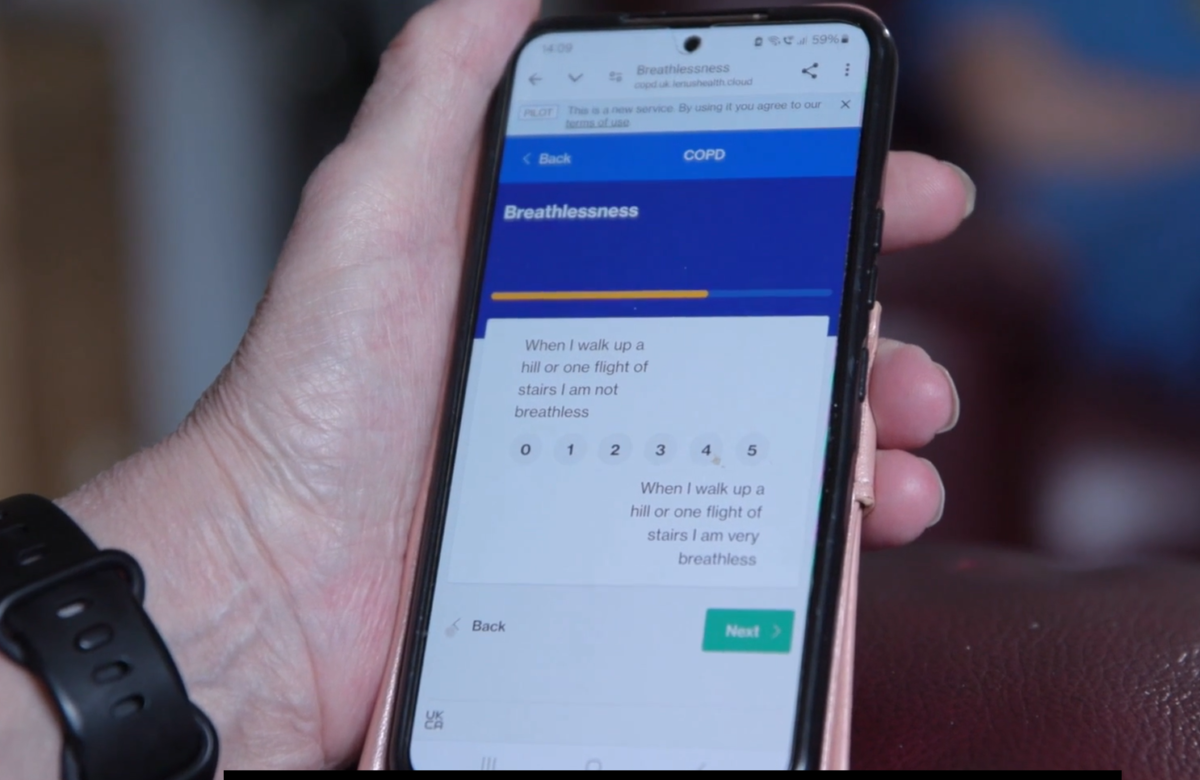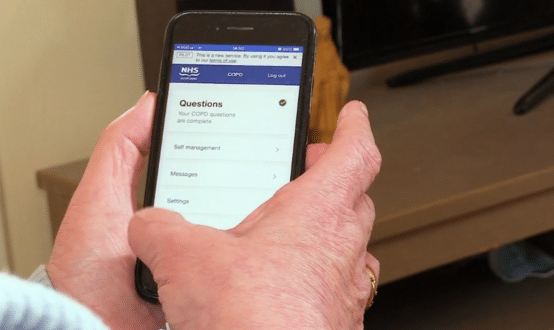Digital Apps Digest

This news summary of digital apps includes Cinapsis helping GPs with skin cancer referrals, the Apex Analytics automated toolset helping to track Strep A outbreaks and Heyr partnering with Imperial College to research tools for promoting mental health self-care.
Cinapsis helps GPs in Norfolk and Waveny streamline skin cancer referrals
GPs in Norfolk and Waveney have reduced unnecessary referrals to urgent skin cancer care by almost 80% (79.6%), using an app that connects them with hospital consultants in real-time.
Patients presenting with a worrying skin condition or growth at their local GP are normally referred onto a specialist for further consultation.
In Norfolk and Waveney, over 7,800 patients are waiting to start specialist treatment for skin conditions. However, many of the referrals being made turn out to be unnecessary, leading to people joining waiting lists when they don’t need to. This prolongs the wait for those who really need to be seen.
To tackle this, GPs in Norfolk are using a specialist app, Cinapsis, to reduce unnecessary referrals and speed up access to urgent cancer care. Designed by an NHS surgeon, the app enables the GPs to directly contact consultants at their local hospital for a second opinion.
Using a specialist camera attachment – called a dermatoscope – which fits to the GP’s own phone, clinical grade photos of the worrying skin lesion can be captured and sent securely to the consultant via the app.
The consultant can share advice and guidance with the GP and help decide whether a referral to urgent care is needed. The app has enabled almost 80% of cases to be managed in a primary care setting, reducing pressure on busy hospitals in the area and ensuring that those who need urgent skin cancer care can access it faster.
Study shows breast cancer diagnostic tool would save NHS £287m
A revolutionary breast cancer diagnostic technology could save the NHS £287 million if adopted, a new study has found.
The independent health economic study, carried out by Health Tech Connect and commissioned and funded by the UK government, concluded that the AI-powered tool would present huge savings in healthcare with much lower acquisition costs, transportation fees and a reduced prescription of chemotherapy, by as much as 30%. If the tool was utilised for other areas of cancer across the NHS it would offer even greater savings
Most breast cancer biopsy results are currently air freighted to the US for analysis at huge cost to the NHS – and the environment. The 40-page study found that Digistain’s technology eliminates this need, therefore reducing the NHS carbon footprint by 460 tonnes.
At the American Society of Clinical Oncology in Chicago last month, Digistain demonstrated similar diagnostic accuracy to the current National Institute for Health and Care Excellence-approved cancer test.
Digistain has been inducted into the highly selective NHS Innovation Accelerator programme – mandated to help transformative or impactful innovations spread throughout the NHS quickly.
Automated daily data from GPs allows ICB to track winter Strep A outbreak
A new, automated GP dataset created to track daily Strep A presentations proved ‘revolutionary’ for Kent & Medway ICB to help understand service pressures and inform resilience plans during the winter 2022/23 outbreak.
Using the APEX analytics toolkit, the organisation was for the first time able to present an evidence-based picture of the impact of the outbreak on its 185 GP practices – allowing the general practice picture to be assessed alongside its community and acute partners.
The new dataset was proactively introduced by primary care analytics provider Edenbridge Healthcare, part of EMIS Group, to help NHS organisations manage the additional winter pressures caused by the Strep A outbreak.
The data was curated via the APEX toolkit by collating data collected routinely by GPs to record patients presenting with relevant conditions such as: chest infections, acute bacterial laryngitis and acute lower respiratory tract infection for children under five years old. APEX generated daily automatic reports based on these conditions for the ICB.
Heyr partners with Imperial College to research potential of rewards to promote self-care
Heyr has announced a research collaboration with Imperial College London Self-Care Academic Research Unit (SCARU) that aims to explore the potential of gamification and rewards in promoting mental health check-ins and self-care.
The youth mental health crisis in the UK has also deepened, with one-third of all referrals denied help by the NHS in 2022 alone. This partnership is designed to empower young individuals to take charge of their own mental health and wellbeing journey by embracing evidence-based self-care practices every day.
Heyr’s messaging app delivers self-guided therapy and psychoeducation to help young people build mental fitness. Powered by machine learning and grounded in positive psychology, Heyr addresses over 30 lifestyle challenges with actionable tips and resources.
Heyr encourages daily mental health check-ins with its next-gen reward programme – for every check-in, users can earn points that can be used to redeem free coffee, discounts on fashion brands, superfood samples, wellness products, cinema tickets, festival passes and more.
Dr Austen El-Osta, director of the Self-Care Academic Research Unit (SCARU) at Imperial College London, said: “Heyr stands out with its gamified approach to promoting mental wellbeing.
“We’re excited to support Heyr in their evidence generation journey and to understand how digital solutions could be tailored to meet the needs of specific segments of society and demographics as opposed to having a one-size-fits-all approach.”
Research shows Lenus digital service cuts hospital stays in half for COPD patients
Researchers at NHS Greater Glasgow and Clyde (NHS GGC) have found that providing COPD patients with a digital support service could potentially relieve the burden on NHS services by reducing hospital admissions and days patients spend occupying hospital beds each year.
They assessed data from 83 patients with severe COPD after 12-24 months of access to a digital service co-designed with health tech firm Lenus Health, which included a patient app, clinician dashboard and support website.
The RECEIVER trial participants were able to input data about their symptoms and message clinicians through the app. They could also access self-management advice.
During the period observed, the number of hospital admissions and respiratory-related occupied bed days were reduced by around 50% for trial participants.
In the year before using the digital service patients spent an average of 15 days in hospital beds, compared to just seven days the year after taking part in the trial.





2 Comments
Could you provide more details about how the Cinapsis app is helping GPs in Norfolk and Waveney streamline skin cancer referrals? How does the app connect GPs with hospital consultants in real-time? we have alot of journal in Tel U
Hello, We don’t have a lot of additional details about the app other than the information in the story. You could contact Cinapsis. If you go to the story, there should be a link to the company in the text.
Comments are closed.